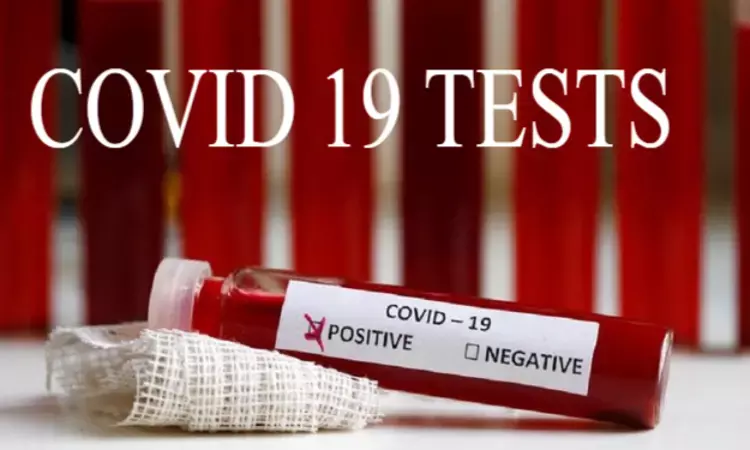- Home
- Medical news & Guidelines
- Anesthesiology
- Cardiology and CTVS
- Critical Care
- Dentistry
- Dermatology
- Diabetes and Endocrinology
- ENT
- Gastroenterology
- Medicine
- Nephrology
- Neurology
- Obstretics-Gynaecology
- Oncology
- Ophthalmology
- Orthopaedics
- Pediatrics-Neonatology
- Psychiatry
- Pulmonology
- Radiology
- Surgery
- Urology
- Laboratory Medicine
- Diet
- Nursing
- Paramedical
- Physiotherapy
- Health news
- Fact Check
- Bone Health Fact Check
- Brain Health Fact Check
- Cancer Related Fact Check
- Child Care Fact Check
- Dental and oral health fact check
- Diabetes and metabolic health fact check
- Diet and Nutrition Fact Check
- Eye and ENT Care Fact Check
- Fitness fact check
- Gut health fact check
- Heart health fact check
- Kidney health fact check
- Medical education fact check
- Men's health fact check
- Respiratory fact check
- Skin and hair care fact check
- Vaccine and Immunization fact check
- Women's health fact check
- AYUSH
- State News
- Andaman and Nicobar Islands
- Andhra Pradesh
- Arunachal Pradesh
- Assam
- Bihar
- Chandigarh
- Chattisgarh
- Dadra and Nagar Haveli
- Daman and Diu
- Delhi
- Goa
- Gujarat
- Haryana
- Himachal Pradesh
- Jammu & Kashmir
- Jharkhand
- Karnataka
- Kerala
- Ladakh
- Lakshadweep
- Madhya Pradesh
- Maharashtra
- Manipur
- Meghalaya
- Mizoram
- Nagaland
- Odisha
- Puducherry
- Punjab
- Rajasthan
- Sikkim
- Tamil Nadu
- Telangana
- Tripura
- Uttar Pradesh
- Uttrakhand
- West Bengal
- Medical Education
- Industry
IDSA Guidelines on Serologic Testing for the Diagnosis of COVID-19

Infectious Diseases Society of America has released Guidelines on Serologic Testing for the Diagnosis of COVID-19. IDSA's goal was to develop evidence-based recommendations that assist clinicians, clinical laboratories, patients and policymakers in decisions related to the optimal use of SARS-CoV-2 serologic tests in a variety of settings. The guidelines also highlight important unmet research needs pertaining to the use of anti-SARS-CoV-2 antibody tests for diagnosis, public health surveillance, vaccine development and the selection of convalescent plasma donors.
Main recommendations include-
- Recommendation 1: The IDSA panel suggests against using serologic testing to diagnose SARS-CoV-2 infection during the first two weeks (14 days) following symptom onset (conditional recommendation, very low certainty of evidence).
- Recommendation 2: When SARS-CoV-2 infection requires laboratory confirmation for clinical or epidemiological purposes, the IDSA panel suggests testing for SARS-CoV-2 IgG or total antibody three to four weeks after symptom onset to detect evidence of past SARS-CoV-2 infection (conditional recommendation, very low certainty of evidence).
- Remark – When serology is being considered as an adjunct to NAAT for diagnosis, testing three to four weeks post-symptom onset maximizes the sensitivity and specificity to detect past infection.
- Remark – Serosurveillance studies should use assays with high specificity (i.e., >99.5%), especially when the prevalence of SARS-CoV-2 in the community is expected to be low.
- Recommendation 3: The IDSA panel makes no recommendation either for or against using IgM antibodies to detect evidence of past SARS-CoV-2 infection (conditional recommendation, very low certainty of evidence).
- Recommendation 4: The IDSA panel suggests against using IgA antibodies to detect evidence of past SARS-CoV-2 infection (conditional recommendation, very low certainty of evidence).
- Recommendation 5: The IDSA panel suggests against using IgM or IgG antibody combination tests to detect evidence of past SARS-CoV-2 infection (conditional recommendation, very low certainty of evidence).
- Remark – IgM or IgG combination tests are those where detecting either antibody class is used to define a positive result.
- Recommendation 6: The IDSA panel suggests using IgG antibody to provide evidence of COVID-19 infection in symptomatic patients with a high clinical suspicion and repeatedly negative NAAT testing (weak recommendation, very low certainty of evidence).
- Remark – When serology is being considered as an adjunct to NAAT for diagnosis, testing three to four weeks post-symptom onset maximizes the sensitivity and specificity to detect past infection.
- Recommendation 7: In pediatric patients with multisystem inflammatory syndrome, the IDSA panel suggests using both IgG antibody and NAAT to provide evidence of current or past COVID-19 infection (strong recommendation, very low certainty of evidence).
- Recommendation 8: The IDSA panel makes no recommendation for or against using capillary versus venous blood for serologic testing to detect SARS-CoV-2 antibodies (knowledge gap).
Infectious Diseases Society of America
Dr Kamal Kant Kohli-MBBS, DTCD- a chest specialist with more than 30 years of practice and a flair for writing clinical articles, Dr Kamal Kant Kohli joined Medical Dialogues as a Chief Editor of Medical News. Besides writing articles, as an editor, he proofreads and verifies all the medical content published on Medical Dialogues including those coming from journals, studies,medical conferences,guidelines etc. Email: drkohli@medicaldialogues.in. Contact no. 011-43720751


